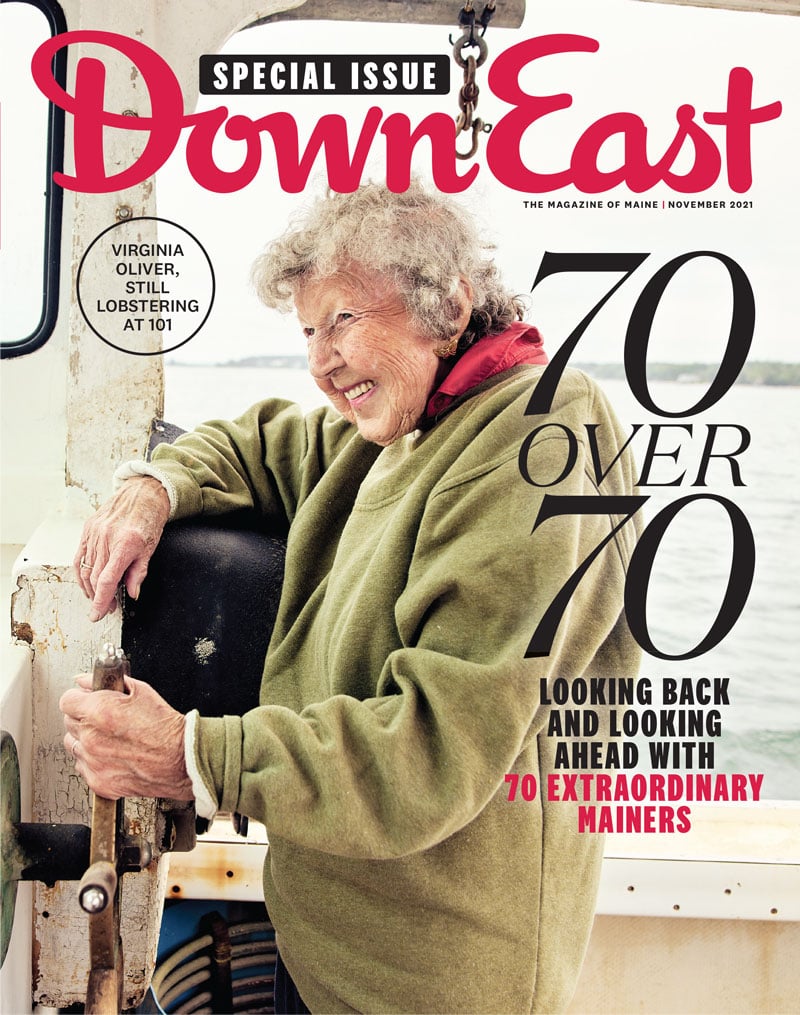
By Brian Kevin
From our November 2021 issue
Roger Angell was 12 years old when he first visited Brooklin, on the Blue Hill peninsula, in 1933. That year, his mother, Katharine Sergeant Angell White, and her husband of four years, E. B. White, bought a farmhouse in North Brooklin, a rambling place with a boathouse that seemed to Angell’s stepfather like a fine spot for a table and a typewriter. Angell spent a portion of his summers there throughout his adolescence, learning to sail, and he kept on returning into adulthood, as he married, raised a family, and launched a career as a writer and editor, joining the staff of the New Yorker in 1956, where both his mother and stepfather had preceded him.
Today, he and his wife, Peggy, spend summers in a 101-year-old, gray-shingled cottage that overlooks Wells Cove and Eggemoggin Reach beyond. Their house, Angell points out, is the same age he is. “It’s perfectly built — there isn’t a creak or a sag anywhere,” he says. “Nothing is giving way, nothing had to be redone. It’s just amazing.” Until the mid-’70s, Angell and his late wife, Carol, used to rent the cottage. When they asked the owner about buying, she told them it was set aside for a nephew. “Then he showed up once, long divorced and bringing a woman who was not his wife,” Angell recalls. “She was so shocked, she let us buy the place.”
Angell has written plenty about summers in Brooklin — about his family and neighbors, about the town’s cemeteries, Fourth of July parade, and modest yacht club — most recently in This Old Man, a collection of essays he published at 95. Much of the book, Angell’s 10th, reflects on aging and loss (much of it reflects on baseball, his longtime favorite beat), and it’s already considered a classic. Not that Angell spends time considering his legacy. “I’ve never for a minute thought of what effect my work would have on my posthumous reputation — I just wrote out of interest,” he says. “People will read me, and they will also forget me. I’m not looking for immortality.”
His favorite place in Maine, he says, would have to be his porch. Twenty yards from the high-water mark, it’s hosted generations of family and untold numbers of guests. It’s his perch for watching the Eggemoggin Reach Regatta each August. Facing west, it’s a particularly sublime place when the sun descends on cloudless afternoons. “At the right time, the way the light hits the row of windows is as beautiful as the light itself,” Angell says. “We’re constantly standing and admiring the wonder of this old structure.”
Headshot by Bill Ray




